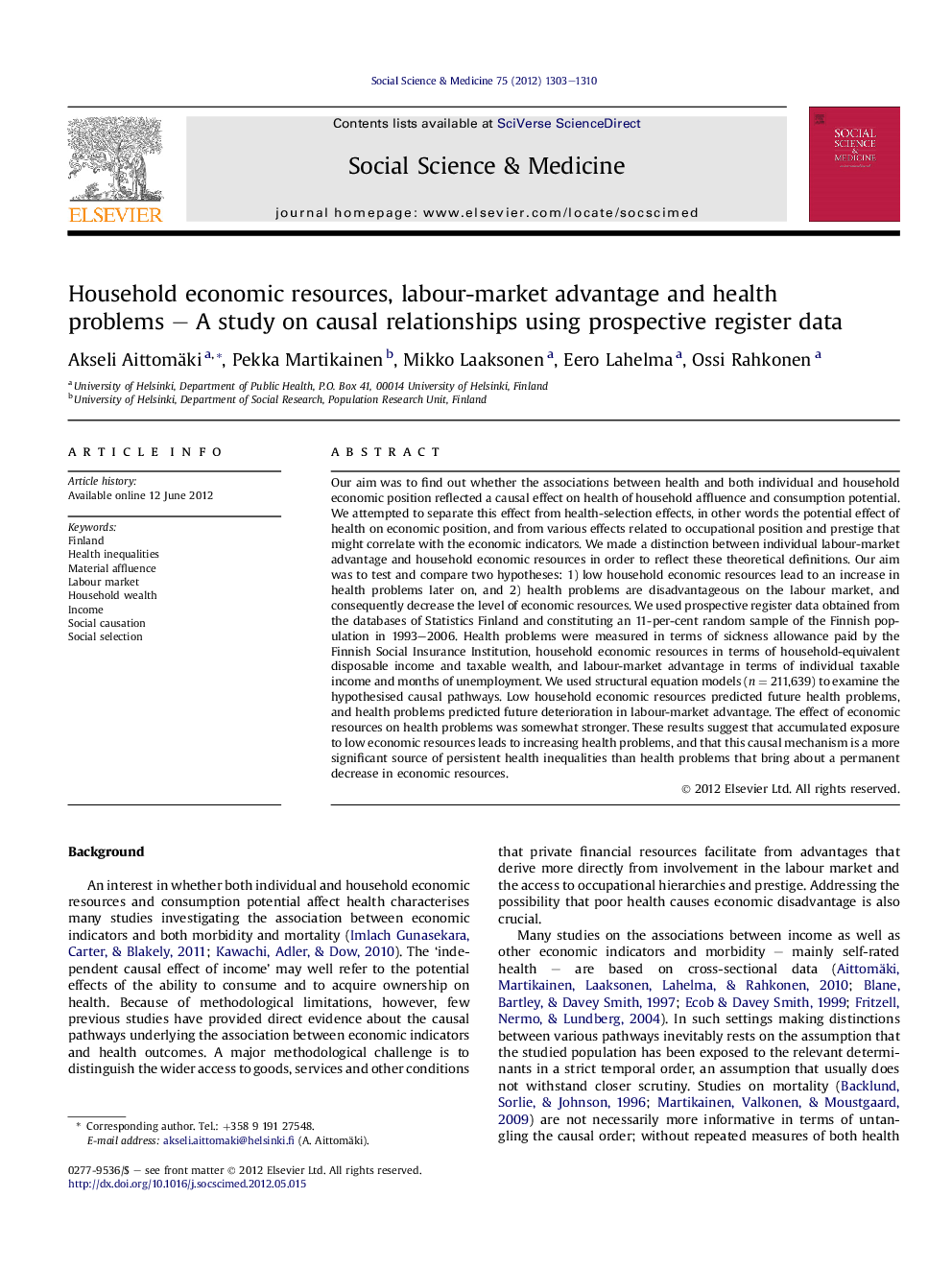| Article ID | Journal | Published Year | Pages | File Type |
|---|---|---|---|---|
| 952475 | Social Science & Medicine | 2012 | 8 Pages |
Our aim was to find out whether the associations between health and both individual and household economic position reflected a causal effect on health of household affluence and consumption potential. We attempted to separate this effect from health-selection effects, in other words the potential effect of health on economic position, and from various effects related to occupational position and prestige that might correlate with the economic indicators. We made a distinction between individual labour-market advantage and household economic resources in order to reflect these theoretical definitions. Our aim was to test and compare two hypotheses: 1) low household economic resources lead to an increase in health problems later on, and 2) health problems are disadvantageous on the labour market, and consequently decrease the level of economic resources. We used prospective register data obtained from the databases of Statistics Finland and constituting an 11-per-cent random sample of the Finnish population in 1993–2006. Health problems were measured in terms of sickness allowance paid by the Finnish Social Insurance Institution, household economic resources in terms of household-equivalent disposable income and taxable wealth, and labour-market advantage in terms of individual taxable income and months of unemployment. We used structural equation models (n = 211,639) to examine the hypothesised causal pathways. Low household economic resources predicted future health problems, and health problems predicted future deterioration in labour-market advantage. The effect of economic resources on health problems was somewhat stronger. These results suggest that accumulated exposure to low economic resources leads to increasing health problems, and that this causal mechanism is a more significant source of persistent health inequalities than health problems that bring about a permanent decrease in economic resources.
► A 13-year follow-up of 211,639 persons verified dependence between household affluence and health problems. ► Low economic resources were found to predict later health problems. ► Health problems were found to predict later labour-market disadvantage. ► The effect of economic resources on health is likely to contribute to health inequalities more than the effect of health on labour-market advantage and economic resources.
